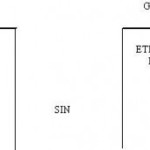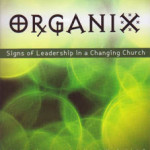 A Wesley Seminary student requested to interview me for her paper on on bridging the segregation gap between the white and the black church. While I could quickly think of several people more qualified to answer than me, I consented to the interview and have posted the transcript here.
A Wesley Seminary student requested to interview me for her paper on on bridging the segregation gap between the white and the black church. While I could quickly think of several people more qualified to answer than me, I consented to the interview and have posted the transcript here.
Why are our churches still segregated?
That is a huge question. I wondered if by “our churches” you mean local Christian churches, churches in the United States, or The Wesleyan Church. I’ll try and address all of these, but begin with the more general question.
- Sociologically/anthropologically, it seems human beings are comfortable grouping together with others that are “like” themselves in some way: familial ties, ethnic, economic level, this list could go on and on. It’s the homogeneous unit principle (you can look that up yourself) at work. Grouping is not itself a bad thing. It is how the human race survived and grew, not just numerically but also technologically and culturally. It has worked for thousands of years. Local churches, since they are made up of humanity, reflect this.
- Historically we are separated. This is related to the sociological answer, but unique. Sometimes some people choose to group together, while other times some people choose to exclude others. When those instances of segregation occur we live with them for generations.
- Example 1: Officials at St. George’s Methodist Episcopal Church in Philadelphia pulled praying Blacks off their knees while praying (http://www.ame-church.com/our-church/our-history/). That act led to the founding of the African Methodist Episcopal Church, which remains with us today. This type of ethnic denominational divide did not only happen with the Methodists.
- Example 2: I believe at least in part due to the rise of nationalism, the Eastern Orthodox Church is divided along ethnic and national lines: Greek Orthodox, Russian Orthodox, Czech and Slovak Orthodox, Polish Orthodox, etc.
- Related to history is time and culture. Once groups have been apart for a length of time, it is difficult to get back together. Let’s imagine a revised history for The Beatles breakup. John and George form a new band, and Paul and Ringo form their own band. Then, years later The Beatles want to get back together. We now have 4 guitarists, 2 bass players, 2 drummers, and several lead singers, and they have been playing and singing different music for the past decade. How do they make this reunion work? So also, it is just difficult logistically and culturally for any two churches or denominations to join, regardless of ethnicity. Also, an exceedingly difficult cultural barrier to cross is language. Even with individuals there can be a cultural stigma for crossing ethnic lines, even if crossing that line is to attend church. An African-American might be called a “sell out” or “Oreo.” I’ve heard Whites called “wannabe niggas.”
- Integration of the local church has just not been a priority. Taking the good news of Jesus Christ to all nations (ethnicities) I think has been a consistent priority of the Church, after all, that is The Great Commission, but integration at the local church level, not so much, perhaps not since the Apostle Paul. The Church could have also been a leader in race reconciliation both after the U.S. Civil War and the Civil Rights Movement, but I think we dropped the ball.
- Ignorance and sin keeps us apart. Some do not know that the Church should be, and has to work toward, unity in this realm. Some do not know how to go about it. Some do not want to do it. Which leads to your next questions.
Why does this matter? and What does God think?
The answer to those questions really go together.
- Jesus’ command is to go and make disciples of all ethnicities. (Matthew 28:18-20)
- Unity is a consistent command of Scripture to God’s people. (Ps. 133:1; John 17:23; Eph. 1:10, 4:3. 13; Col. 3:14)
- In Christ the ethnic divide is gone. (Rom 1:16, 2:9-10, 3:22, 10:12; Gal. 2:14, 3:28; Col. 3:11)
- The Church has the ministry of reconciliation, and I believe that extends beyond just people being reconciled to God, but also to each other. (Rom. 5:11, 11:15; 2 Cor. 5:18-19)
- The multi-ethic church/people of God is what is promised to Abraham, demonstrated at Pentecost, and fulfilled in heaven. God’s Kingdom is to come and His will done on earth as in heaven. (Gen. 18:18, 22:18, 26:4; Gal. 3:8; Acts 2; Rev. 7:9; Matt. 6:10)
- Especially related to “why this matters” is that we are living in a changing world. Multi-ethnic marriages and families are on the rise, and not only increasingly accepted, but preferred by some. If the church is going to reach this changing portion of society as well as be a place these people feel comfortable worshiping, we cannot continue to be segregated.
I have mostly limited my responses to ethic divisions, the focus of your thesis, but in multi-ethnic ministry we also consider generations, gender, and socio-economics.
photo credit: Brave Heart via photopin cc






